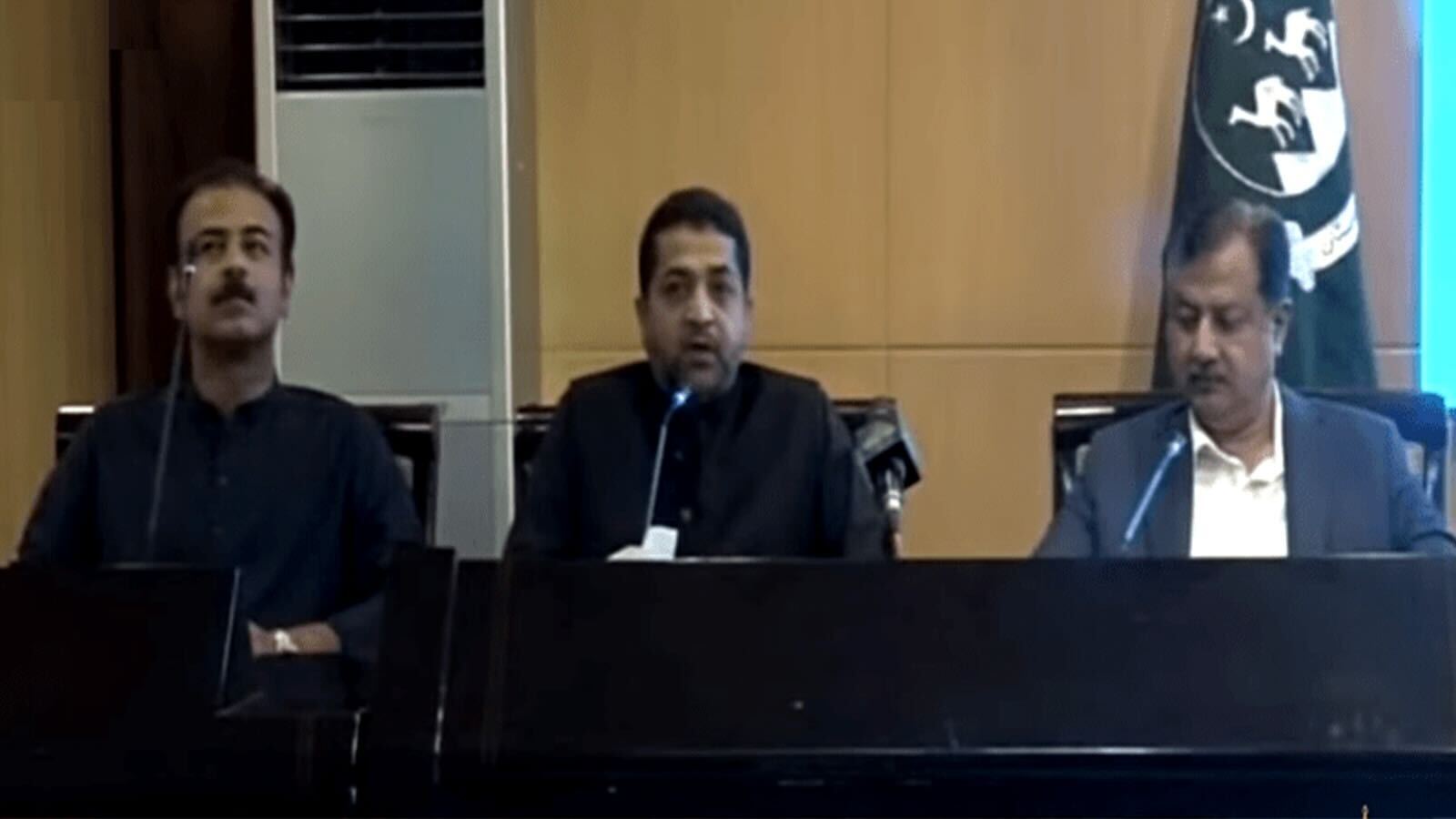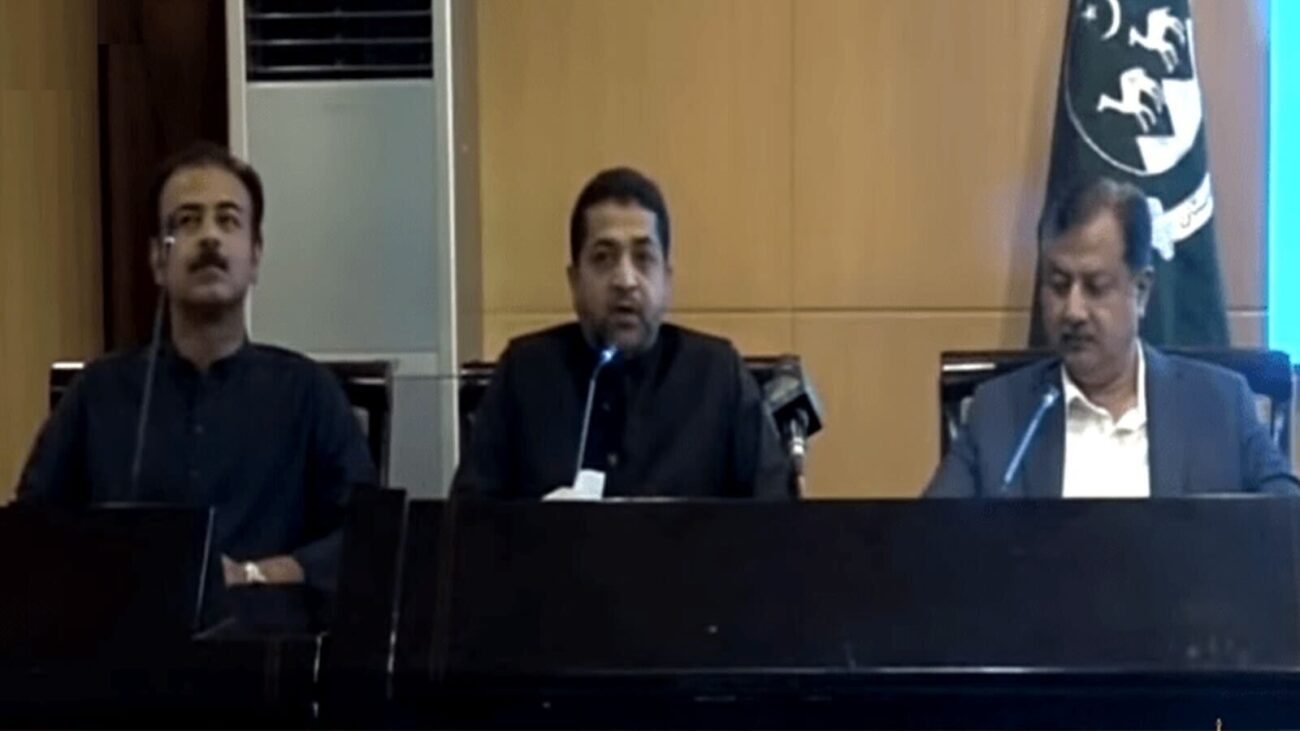India as ‘Single Investor’ of TTP-BLA Nexus in Pakistan: Balochistan Home Minister


June 26, 2024 – ‘This single investor is India’ The Home Minister of Balochistan, Mir Ziaullah Langau, has accused India of being responsible for the nexus between the Tehreek-i-Taliban Pakistan (TTP) and the Balochistan Liberation Army (BLA), in a press conference in Quetta.
The Allegations and Evidence
Langau further stated at the press conference that the ideologically disparate TTP and BLA, an ethnic militant group that is fighting a secessionist war in Pakistan’s western region, are undertaking ‘joint terrorist activities against [Pakistan] with the support of India, which is financing them’. Among the evidence for this, Langau claimed, is the recent arrest of two important leaders of the TTP and the BLA – respectively, Nasrullah (commonly known as Maulvi Mansoor) and Idrees (commonly known as Irshad) – in the largest intelligence-based operation.
Langau played an audio statement from Nasrullah describing his operations for the BLA and the pair’s links to India’s state intelligence agency the Research and Analysis Wing (RAW). ‘There should not be any doubt left in the world community’s mind that there is an international terrorist country, India… behind all this’ Langau insisted.
Nasrullah’s Testimony
Nasrullah, a member of the South Waziristan’s Sararogha tehsil and a TTP, core committee ‘member’ since 2007, when he ‘worked under the order of Baitullah Mehsud … and then for the past one year [2023] was an emir in TTP’s defence commission’. He divulged operational details of attacks on Pakistani military checkposts, Indian intelligence support along with recruitment of new members in the TTP.
Nasrullah explained that he moved to Afghanistan’s Paktika province during the time of Pakistan ‘s Operation Zarb-i-Azb, and after training he would sneak back into Balochistan with the help of a BLA guide, coordinated by BLA Majeed Brigade commander Bashir Zeb.
In the above video statement, he identified January 2024 as the date on which RAW and BLA had planned to set up TTP bases in Khuzdar, Balochistan, and elaborated these goals:
Sabotaging the China-Pakistan Economic Corridor (CPEC) projects, including targeting Chinese nationals.
Using kidnapping for ransom to inflame the issue of enforced disappearance and damage the reputation of Pakistani intelligence agencies.
Spreading anarchy and frustration through terrorist activities in Balochistan.
After being arrested in Kalat by a Pakistan Army patrol soon after his guide from the Baloch Liberation Army (BLA) abandoned him and his group, Nasrullah described his sorry history, and asked for forgiveness from all those harmed by his activities on behalf of the Tehreek-e-Taliban Pakistan (TTP).
Implications for Balochistan and Pakistan
Langau’s attacks against India highlight Balochistan’s long-standing security woes in the region, namely the insurgent attacks that wreak havoc on security forces, upcoming infrastructure and the civilian population. It’s useful to note what set the TTP apart from the BLA according to the Home Minister: the ideology. He voiced the fear that they’re being used by someone who has a specific financial agenda, ‘someone who wants to destabilise us’.
In his speech, Langau addressed the youth and women of Balochistan to turn away from the terrorists, whom he called manoch behtarin hanooz [enemy of our enemy], so that they could see their real intentions, and support the Pakistani state and their security forces.
Recent Militant Activities
The revelation comes amid a series of high-profile militant activities in Balochistan:
1.Earlier this month of kidnapping from a picnic spot in Harnai of 10 persons.
2.Sarbandan Murders: Seven Punjabi labourers were murdered in Sarbandan in May, which was followed by the arrest of two BLA suspects.
3.Noshki Bus Attack: In April, nine passengers were shot dead while they were forcibly offloaded from a Karachi-bound bus en route to Taftan, and officially claimed by BLA.
Reactions and International Implications
This claim concurs with what the Pakistani government has argued: India inflicts terrorism on Pakistan as a matter of state policy. Islamabad pleads with the world to examine and curtail what is called India’s state-sponsored terrorism. It demands action and international scrutiny of India’s alleged encouragement of the militant groups.
Meanwhile, India has rejected such charges as a smokescreen for Pakistan’s own troubles, maintaining that Islamabad is trying to sidestep growing global concerns over its difficulties with Islamist terrorism and extremism.
These allegations are likely to further exacerbate an already tense and volatile relationship between India and Pakistan Narahara remarked that the BLA’s nom de guerra (war name) indicates that it ‘identifies very closely with the TTP’. If proven, such coordination would portend instability in the region, and would further complicate Pakistan’s counterterrorism efforts.
Conclusion
Possibly, the Balochistan Home Minister’s public announcements about their convergence and the connections between the TTP-BLA nexus and outside support bring about new dynamics into how Pakistan approaches the policy challenges of controlling terrorism and insurgency both externally and within its borders. It remains to be seen if these allegations will play a more central role in Pakistan’s policy decisions with India and in its overall approach to international diplomacy. Will Pakistan succeed where the US and NATO forces failed: securing and bringing those who perpetrated this step closer to peace, justice and the rule of law? Three seems to be more possible than before.
Source:
https://www.dawn.com/







